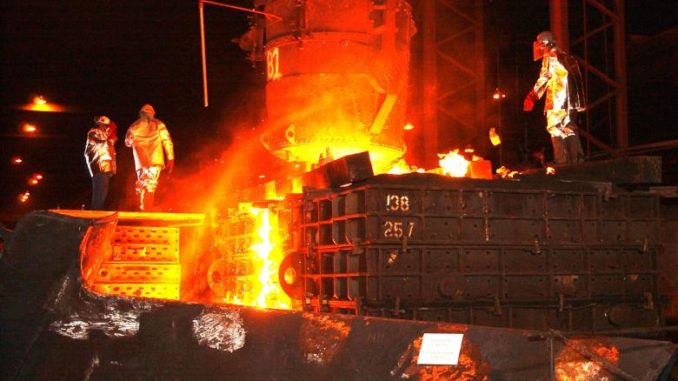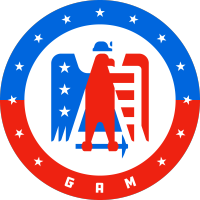
I took a call this week from someone who had been shunning and shaming my attempts for an ESG conversation for nearly five years now.
“OK what’s all this ESG stuff,” he grumbled. “My banker tells me I need it, so what’s this all about?”
First off, this is an increasingly normal call for The Crude Life. Daily we receive emails and phone calls from people wanting information and to “pick my brain” on ESG topics.
Well unfortunately this isn’t that easy. This isn’t paying a bag of cash to a non profit so they can plant a tree in order for you to get a carbon credit whether the tree lives or not. Nor will paying a think tank for a report. No this is about being true to your mission statement, ethics in energy and a demonstration of basic human decency.
Now, let’s take a look at a supply chain manufacturing company. There are many manufacturing companies in the oil and gas industry. In fact, one person I spoke to last week wanted to understand ESG because his operator client was insisting his company become ESG Certified in 2022.
That’s right. Many of the same people in power and producers who vilified the mention of the acronym ESG last year are the same ones forcing people to become ESG by year end or they can find work elsewhere.
To me these leaders in energy are no different than the Climate Activists who are running around the country telling people to eat crickets, drive less and set my thermostat to 50 degrees to offset their misinformation. Reacting to react is no way to run a sustainable business, and most activists and organizational leaders are not running a business, they are funded and told what to say.
So if you are in the manufacturing industry within the oil and gas spectrum, what does this ESG mean? Let’s take a look.
Recently a leading investor coalition, which is very interested in using climate change as their marketing strategy, has released new expectations for the steel industry. Their cited goal is part of a sector-specific strategy to lower carbon emissions and meet zero carbon milestones.
The name of this European-influenced group is called the Institutional Investors Group on Climate Change (IIGCC), which has more than 300 members managing around $44 trillion in assets. To say they have influence would be putting it mildly.
Here’s how they spent their time and money the past year or so. First, they publicly came out and said there was ‘little evidence’ of anyone in industry demonstrating actions needed to bring emissions down to the net-zero roadmap set out by the International Energy Agency (IEA). Since no one in industry publicly challenged their public outcry and carbon campaign, they got the right ears to listen and the right heartstrings pulled.
According to IIGCC, steel industry emissions account for about nine percent of the global total. The group says Scope 1 emissions need to fall by 29 percent by 2030 and 91 percent by 2050 to meet the targets set by the IEA.
Their report states the steel sector is not on track to meet these targets by some margin and has major work to do in the ESG field.
Right now, according to the leading authority figures like the IEA, Asian and European companies are leading the campaign. It should be noted that “leading” is a “misleading” term too, since Europe and Asia have different national and regional regulations.
But since globalization seems to be a foregone conclusion, what is happening through this ESG energy transition is the tracking of emissions across the full value chain of the full global economy. In fact, there are new expectations coming for companies to set short, medium and long-term decarbonization targets that align with IEA scenario planning.
One company who has figured out how to buy some ESG time and money is Mercedes Benz. This past summer they announced a new commitment to launch “green steel” by 2025, creating an awesome opportunity to control the ESG and Carbon Conversation.
Mercedes Benz did a couple things here. One is they made an ESG Moment marking a significant step in the company’s efforts to decarbonize its supply chain. If your company hasn’t done that yet, you are still operating a business like it’s 2014.
The second thing Mercedes did was control their Carbon Conversation. While the rest of the automakers are trying to Keep Up With The Tesla’s and the Electric Vehicle revolution, this vehicle manufacturer said we are going to have a different Carbon Conversation about our Net Zero journey.
According to Mercedes-Benz, a basic sedan consists of about 50% steel, which accounts for about 30% of carbon emissions in production. As manufacturers around the world aim to decarbonize their supply chains, a demand for cleaner and greener steel is as needed in the auto world as EV Charging Stations are.
But wait, isn’t steel made of carbon? So won’t reducing carbon in steel make it weaker and less reliable? Perhaps, but I am not qualified to answer that, I only know that steel is an alloy made up of iron with typically a very small percent of carbon to improve its strength and fracture resistance.
It’s how the steel is forged and manufactured where you can see significant carbon reductions. This is because in reality, there hasn’t been a real major technology shift in the steel industry in the past 50 years, so it’s more about the energy required to make a ton of crude steel.
This number has dropped by 40 percent in the past 30-years. In Global Carbon Numbers, you are talking about the CO2 intensity dropping by 33 percent.
According to the World Steel Institute, each job created in the steel industry generates eight indirect jobs. However, in today’s ESG marketplace, the role of uncertainty can be too much for some. Let’s take a look at the steel industry’s predicament, they are not alone.
So many markets right now are suffering “chicken or egg” challenges. The steel industry is one of those. You have many potential users of new innovations yet are hesitating to shift because supply chains are not reliable and potential suppliers of efficient energy are hesitating to build because there is not enough demand. Just enough pressure.
Let’s stick in the steel industry with the last example from the manufacturing sector in ESG. I’ll even layer in my personal experience from the paradigm-shifted printing industry.
When the Internet came out, it created more uncertainty in the media world than at any time in human history. Media companies had to figure out how to make money in the new marketplace. Ironically more radio and television stations hung on longer than most newspapers.
The majority of the newspapers in America had a 100-year plus monopoly in many markets and after the Internet came out most declared bankruptcy within a decade. One hundred years with a monopoly and within ten years of the Internet, bankrupt.
One of the reasons so many newspapers declared bankruptcy was because of their sunk costs. Mostly it was their printing press that was a sunk cost. How many decisions is your organization making right now to protect sunk costs?
Newspapers made million dollar decisions to hang on to the past and ignore the present, let alone the future. For the newspaper industry it became more than just the printing press, it shifted to become about leadership and “thought workers” in the end.
In a day and age where the “thought worker” can become a hidden and sunk cost, are you hanging on to a sunken cost in leadership?
The steel industry right now is in a similar place. The steel mills across America are facing their own crossroads of major investments. Hang on to the past of predominantly operating open hearth furnaces or jump on the transition of making steel in basic oxygen furnaces and electric arc furnaces. Or something similar in innovation.
The reality for much of the manufacturing sector of the supply chain is their Carbon Zero goals will just be goals. Maybe new innovations direct the science elsewhere, but as I type this today, the steel industry has a difficult road to carbon free in the next decade, however, that shouldn’t be their goal or expectation.
Take a page out of Mercedes Benz and start telling the story to a captive audience of how you are taking ESG action rather than shouting a negative snarky reaction to the very few who are listening.
Because at the end of the day, in order to achieve sustainability in manufacturing, companies like steelmakers will have to implement strategies across the entire value chain to be ESG. For some it will be easy, all they have to do is revisit their mission statement, take action on their business plan and be impeccable with their own words.
Class dismissed til next week.
Questions on today’s lesson? Know someone using Ethical Energy? ESG University wants to know who these leaders are as we continue to showcase and highlight ESG solutions in energy. For consideration, please email studio@thecrudelife.com companies, people and organizations showing ESG in action.
Everyday your story is being told by someone. Who is telling your story? Who are you telling your story to?
#thecrudelife promotes a culture of inclusion and respect through interviews, content creation, live events and partnerships that educate, enrich, and empower people to create a positive social environment for all, regardless of age, race, religion, sexual orientation, or physical or intellectual ability.
If anyone would like to schedule an interview, meeting or news tip email studio@thecrudelife.com
Industrial Integrity and Energy Ethics are the new entry level expectations in oil and gas, and The Crude Life continues to create original Local, Boots-On-The-Ground Journalism while showcasing other environmentally conscious companies.
Communication is vital in today’s energy extraction and empowerment.
About The Crude Life
The Crude Life produces original content that focuses on industry, the people, energy innovations, community building and it’s proactive culture. Our custom content is non-polarizing, trusted and often news making.
The Crude Life promotes a culture of inclusion and respect through interviews, content creation, live events and partnerships that educate, enrich, and empower people to create a positive social environment for all, regardless of age, race, religion, sexual orientation, or physical or intellectual ability.
Part of our mission is to enable people, companies and communities to affect change, demonstrate their transformative actions and drive energy awareness through storytelling and access to resources.
Sponsors, Music and Other Show Notes

Studio Sponsor: The Industrial Forest
The Industrial Forest is a network of environmentally minded and socially conscious businesses that are using industrial innovations to build a network of sustainable forests across the United States.
Weekly Sponsor: Korwell Energy
Korwell Energy is an industry leading designer, ASME code manufacturer, and remanufacturer of production equipment for oil and gas producers, throughout the Rocky Mountain Region.
They retain both an ASME U and R stamp. Their 28,000 sq ft of manufacturing shop with overhead cranes create a safe and productive environment for their team who collectively have over 75+ years of experience in manufacturing of ASME Oil and Gas production equipment.
Korwell prides themselves on outstanding customer service, expertise, and cutting-edge technology to partner with customers to maximize their individual production goals and help comply with ever changing regulations.

Weekly Sponsor: Great American Mining Co
Great American Mining monetizes wasted, stranded and undervalued gas throughout the oil and gas industry by using it as a power generation source for bitcoin mining. We bring the market and our expertise to the molecule. Our solutions make producers more efficient and profitable while helping to reduce flaring and venting throughout the oil and gas value chain.

Phone Line Sponsor: Swan Energy, Inc. 866.539.0860

Studio Email and Inbox Sponsor: To Be Announced

Featured Music: Alma Cook
For guest, band or show topic requests, email studio@thecrudelife.com
Spread the word. Support the industry. Share the energy.



